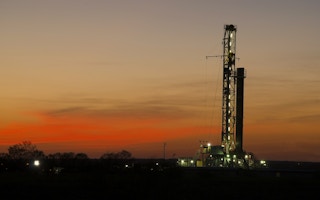For decades, the international energy landscape has been relatively stable, with producers like Saudi Arabia, Iran, and Algeria selling oil and gas to consumers in the United States and Europe. In a few years, however, the energy terrain is likely to be unrecognizable, as dramatic technological, economic, and geopolitical changes reshape commercial relationships worldwide.
To continue reading, subscribe to Eco‑Business.
There's something for everyone. We offer a range of subscription plans.
- Access our stories and receive our Insights Weekly newsletter with the free EB Member plan.
- Unlock unlimited access to our content and archive with EB Circle.
- Publish your content with EB Premium.
What is needed is a new governance structure, one that moves beyond traditional bilateral relationships between producers and consumers. In a rapidly evolving world, guaranteeing energy security will require the careful management of multiple, interlocking relationships. Only an inclusive international forum, in which complex ideas can be shared and debated, is likely to prove adequate to the task of navigating the new era of energy use, production, and consumption.
The ongoing changes are profound. In many energy-exporting countries, domestic consumption is rising steeply. Historically, these countries have treated energy as a cheap resource. Today, they are increasingly taking steps to remove subsidies, introduce market prices, and increase efficiency – policies that are more typically associated with energy-importing countries. BP predicts that in the Middle East, with its extensive fossil-fuel reserves, primary energy consumption will grow 77 per cent by 2035.
At the same time, some traditional importers are tapping new sources of energy and becoming producers, changing the direction of energy flows. The shale-energy revolution in the US is perhaps the best-known example of this shift, but it is not the only one.
The rapidly growing renewable-energy industry is another factor disrupting traditional relationships between producers and consumers. In the first half of 2014, 13 per cent of electricity in Germany came from wind energy alone. Denmark, a country that in the 1970s was almost entirely dependent on energy imports, is now the European Union’s only net energy exporter, often generating more than 100 per cent of its electricity needs from wind power.
“
With the need to maintain trust in the competitive, politically charged, and often unpredictable energy sector both greater than ever and more difficult than ever to meet, an international forum dedicated to addressing concerns and easing tensions could be a powerful tool.
Meanwhile, advances in energy efficiency are also reducing demand for traditional producers’ exports. Highly efficient buildings often can be easily heated with locally produced renewable electricity and supplied with hot water from solar collectors. The introduction of the Near Zero Energy Buildings standard for new buildings in the EU is set to reduce drastically dependence on gas for heating.
The risk is that these rapid changes will combine with destabilizing geopolitics to trigger a retreat from global energy markets. If countries began to define energy security as energy independence and try to supply all their own needs, the result could be expensive overcapacity, massive price distortions, slower technological progress, and weaker economic growth.
With the need to maintain trust in the competitive, politically charged, and often unpredictable energy sector both greater than ever and more difficult than ever to meet, an international forum dedicated to addressing concerns and easing tensions could be a powerful tool. But it must have the right focus. For example, it should not aim at producing legally binding decisions. Plenty of bodies, such as the World Trade Organization, the Energy Charter, and the Energy Community, already do an excellent job of developing rules or enforcing compliance in the energy sector.
Moreover, though such a body should be inclusive, it need not have global ambitions; it would be impractical to try to bring everybody to the table. And while its founders should take care that it not be led or dominated by a single country or bloc of countries, there is no harm if it starts small, with only a few countries, before beginning to expand.
Indeed, the European Commission, which is working toward creating an energy union, is well placed to initiate an open dialogue with non-EU countries on long-term energy policies. The EU is the largest energy importer in the world, and it would be well served to join the discussion of its energy strategy to a conversation with the world’s main exporters. As the EU revises both its energy and foreign affairs policies, it should not miss the chance to integrate an open energy policy dialogue into its planning.
In this context, one of the commission’s traditional weaknesses – that foreign and energy policies are usually decided by individual member states – could serve as an important advantage. The commission will be seen as a facilitator of the discussion, rather than a leader or a dominant player.
Given a proper forum for ironing out disagreements, the rapidly changing energy landscape could be a source of new prosperity. The alternative is a world at risk of tensions and misunderstandings – ones that could easily jump out of the realm of energy policy into international relations and security.
Abdullah M. Al-Shehri is Governor of the Electricity & Cogeneration Regulatory Authority of the Kingdom of Saudi Arabia. Julian Popov, a former Bulgarian Minister of Environment and Water, is Chairman of the Buildings Performance Institute and a Fellow at the European Climate Foundation.
Copyright: Project Syndicate, 2015.
www.project-syndicate.org











